Mammoth (Dawn of Mammals Book 5) Read online
Page 17
Laina said, “He’s coming in. Can he land in snow?”
“We’ll find out,” Hannah said.
“Rex, let’s go,” Laina said. “We need to get Bob. It’ll take us a long time.”
“We don’t even know if he’s going to land. Much less if he’ll help us or not.”
“Let’s go anyway. We can see what’s happening from a distance and come back if he flies off.” The two of them took off in a sprint.
Hannah dropped to her knees and made a pleading gesture with her hands. The biplane passed her, circled around, and came back in low. She heard the pilot scream, “You need help?”
She shook her head “yes” in a ridiculous, exaggerated way while the plane turned and headed back for a third pass. His wings waggled. He’d seen her gesture.
The plane headed in a new direction at the end of its turn, and then it came down lower and lower. It landed. Hannah dropped her spear and her pack where they were and went running for it. It was fifteen minutes before she reached it. He had shut the plane off, and metal pinged as it cooled.
“Hey, little lady,” he said. “Are you in trouble?”
“Terrible trouble,” she said. She invented a story on the fly. “Hi, I’m Hannah…O’Brien. My dad and I were out with a group of students on a camping trip, and he got sick. His heart, I’m afraid.”
“The ticker, eh?” He pulled off a leather helmet. “I’m Row St. James,” he said, rhyming “Row” with “ow,” as in “rowdy.” He was no more than thirty.
“Thank you for stopping. The other two, the students, they’ve gone off to get Dad.” She hoped he hadn’t heard her hesitation before the last word. “Can you possibly take him to the nearest hospital? I’m really worried about him. I have no cash, but I’ll pay you for your trouble later.”
“No, it’s no big deal. I’ll bring him into the airport with me and drive him to the hospital. It ain’t much of a favor. Hardly out of my way but two or three blocks.”
“Thank you.” Hannah tried to work out how to ask him what she wanted to know without sounding like a lunatic. What year is it? That wouldn’t work.
“You all are dressed a little funny,” he said.
Hannah glanced down at her hide cape. “We try to give Dad’s students a—an authentic pioneer experience. For a month, we camp out. Hunt, fish, build shelter. Wear authentic pioneer clothes. The girl you saw was in hides from head to toe. Most of us just use these capes.”
“How long do you do that? A month, you say?”
“It was supposed to be a month, but when Dad went down, we had to stop, so it has been over a month.”
“Boy, that’s some tale.”
Hannah was still working out how to ask the date. “It must be past November by now. I’m sorry, I’ve lost track.”
“I’ll say you have. December fourteenth. Almost Christmas. Your ma will be glad to hear from you, I imagine.”
“No mother. She’s gone, I’m sorry to say. It was just Dad who raised us.” She wanted to keep the number of imaginary siblings vague, in case she needed to claim one of the group was one. “So the hospital in town is good?”
“Small but good.” He shook his head. “I can’t imagine you ladies wanting to be out on a camping trip that long.”
“I’m used to it. Some of the young ones did complain a bit,” Hannah lied. “But it’s a good experience for them, Dad thinks. Say,” she said, as if just remembering a burning question. “How’s the President doing?”
“The President? Of the United States? Well fine, I guess.”
“I was just worried because….” She tried to figure out how she could ask a vague enough question about politics that would elicit information about who the heck was president.
“About his health?”
“Right,” she said.
“Holding up fine. People who said he couldn’t take it turned out to be wrong. I had a cousin with polio who—”
And whatever he said about his cousin was lost in the explosion of excitement in her mind. Roosevelt. 1932-1945. At least she had a range. Could she get away with asking if they were at war yet? She couldn’t think of any way to ask. Though if they were at war, with him being a pilot, wouldn’t he be talking about that, making excuses for not joining up? 1932-1940, then, before Pearl Harbor. That range was good enough for now.
She asked him questions about himself to keep him from quizzing her about her spontaneous lie about a crazy field trip. At least she’d kept Bob’s name the same, so he could use it in the hospital, and keep the truth that he was a teacher. She’d only have a minute to clue Bob in to what to say when people asked him about himself. She realized as the pilot talked that where he was flying Bob was not to the nearest town to the fossil park, where the high school had been and the other group was hiking to, but a bigger city almost fifty miles away.
“They coming back? Those other two?”
“I’m sorry, but they need to carry him, and we’re in a canyon over there. It might take quite some time.”
“There’s no road here, or I’d get someone out here in a car. But my brother is going to be mad. It’s his aeroplane, you see. Funny story, that….” And he was off telling the funny story.
Hannah was relieved he was a talker. She kept him going, asking him question after question. Noon came and the afternoon began to wear on. She was staring back in the direction of their camp and felt great relief when she was able to say, “There they are! Please excuse me. I’m going to go meet them. And thank you again for waiting. You’re an angel, really you are.”
“Well, I don’t know about an angel,” he said with a chuckle.
She gave him a friendly wave as she sprinted to meet the others who were carrying Bob in the travois. She joined Laina and took up part of the burden. “It’s the 1930s. Roosevelt is president. Bob, you’re my father.” And, talking fast, she told them everything she could about the pilot, the world he described, and the lies she had told him.
“Good thinking,” Bob said. “I could walk a bit, you know.”
“No,” Rex said. “Keep yourself looking like an invalid, and he’ll feel better about doing us this favor.”
“Pretty big favor,” Bob said. “How long has he been waiting?”
“I think four hours, but I’ll check my watch in a second,” Laina said.
“Awfully kind of him.”
“I offered to pay him,” Hannah said.
“With what?” Rex said.
“Yeah, I said it’d have to be later.”
“Hospital, too,” Bob said. “They’ll want money.”
“Maybe they’ll run a tab for you,” Hannah said.
“Maybe we shouldn’t do this,” Bob said. “I’m not dying just yet.”
“No, we should do this,” Hannah said. “I’m sure there were heart medicines in the thirties, and you can use the rest and care for a week or two. Won’t a warm bed feel great? You can come back and jump but be in better shape for it.”
Rex said, “Mr. O’Brien, you need to a see a doctor. I mean, Hannah has done a good job for you, but you obviously are sick.”
“Will you all be okay on your own?” he said.
“We’ll be terrific,” Hannah said, choosing her words carefully in case the pilot was listening. They were close now, and the man was checking out his plane, in preparation for taking off again. “Easy living compared to what we’ve recently experienced. Just rest up, and I’ll come into town and find you in a few days. Don’t worry if it’s four or five days, as I have no idea how I’ll get there.” She looked up at the pilot and whispered, “We’re getting close. Let’s watch what we say.”
The pilot was understandably anxious to get going. They loaded Bob in—“Put your meat hooks right here, and I’ll push you”—bundled him up in a blanket the pilot had, and then they ran off to a safe distance to watch the pilot turn and taxi down the clear patch. The plane lifted off the ground.
Hannah sagged in relief, both at getting Bob some treatment
and at the fact that she hadn’t screwed up too badly in talking to the pilot. He might think about her story overnight and begin to doubt it, but for now he had taken it at face value.
They turned around and headed back to Nari, who had been left alone. But it wasn’t as big a danger in this world, now that they knew the year they had arrived in. The ease of that constant worry, of attack, of the appearance of a hungry predator was such a relief, Hannah felt nearly faint with it. When Laina said, “I’m going to veer off and check the traps,” she said, “Sure!” and felt as cheerful about Laina going off alone as she sounded. She felt—amazing. Relieved. Unburdened. Hopeful.
“A town. Grocery stores. Someplace warm, even,” Rex said. “If they allow black people at their motels, I wouldn’t mind a room with a bath.”
“I don’t see how we can go to a grocery store or a motel,” she said. “We don’t have money.”
“I still have a few dollars in my pocket and—oh,” he said. “They’re from like 2017 or something, aren’t they?”
“I think money looked different back in the 30s. I think a lot of people might have used silver dollars, not paper ones.”
“Oh yeah. Well we could trade something, like your watch.”
“My watch with the lithium battery? And no stem to wind it? Which is now Laina’s, not mine, but either way, I don’t think so.”
“I guess not. None of the girls was wearing jewelry, were they?”
“No. Bob has a wedding ring. I’d hate to see him have to hock it, but he might need to, to pay the hospital bill.”
“Then what use is a town to us?”
“I don’t know yet. Maybe there are temporary jobs we can take. Or maybe there’s another way.”
“What other way?”
She knew the answer but wasn’t ready to talk about it yet. The answer was, steal things from town, from stores. It was a simpler world, right? Women especially would not be suspected of shoplifting an item like a gun or hatchet. She and Claire and Dixie could probably walk in anywhere and walk out with pockets stuffed. Or maybe not. Maybe as strangers, and scruffy-looking strangers at that, they’d have the locals keeping a suspicious eye on them. But she bet the locks were lousy right now. At night, she could jimmy a door. Or break a window. Get into a store, gather gear, get out in ten minutes at three in the morning. Electronic alarms, fish-eye cameras, those were well in the future. A simpler, more trusting time—that’s what it was supposed to be. She hoped it was so. She needed clean clothes first, to look presentable. And then she’d be able to at least reconnoiter a store. What did thieves call it? Case the joint in the daytime, and she could return at night for a major robbery.
She dropped the line of thought. The others would probably balk at it. She didn’t want to do it either. But they could use better supplies, and while they could hunt for the table and hunt for new hides to make clothing, even a single grocery sack of supplies would help. Her mind went wild thinking of a wish list. Hatchet. Gun and ammunition. Fishing gear and a long bow, if one could be found. Someone like Laina or Ted would be able to learn to use that in no time. A weapon that worked from a distance would keep them from needing to hunt close in. That meant safety, no more deaths or injuries during a hunt.
She realized that she assumed everyone would want to try again, to go back and jump again and try and hit their home time.
But maybe that assumption was wrong. Because, in a flash of insight, she realized that she wouldn’t be jumping back.
Chapter 22
That much, Hannah was instantly sure of. She wanted to stay.
She understood this in a split second, but as she walked with Rex, she questioned the reasons. If Bob had to stay for medical reasons, of course she wanted to stay with him. But more than that, she was weary of the risk of this life and weary of the worry, and she wanted to walk into a grocery store and point at a roast and have it wrapped for her, not run as hard as she could to be able to stab it with a spear and gut it and be covered with its blood, or with worse.
Was that fair? Could she abandon everyone else to that danger and remove herself from it?
The kids had grown into adults. Into survivors. Laina was certainly an adult, in years as well as experience. They had each other. They knew how to live in the wild world. The ones who had begun this adventure as high school students were more capable at surviving in the wild than any seven American people their ages had been in decades and decades. With a gun or bow, they’d be much safer.
It obviously wasn’t going to be easy to hit the precise date on another pair of jumps. She didn’t want to, like Laina, spend sixteen years of her life trying to hit a particular date. This was close—close enough. This world was civilized. And without Laina, she on her own would probably not come any closer. So if she stayed, it was going to be forever.
Was she ready to make that commitment?
Yes.
She understood it was selfish of her. Maybe she was a selfish person. Maybe it’s why she had disliked Dixie so much, that she saw her worst quality in Dixie.
But she had reached the end of her energy, her abilities, her stamina. Here was a world with hot water running out of faucets and grocery stores. She wanted that again, the wanting like a physical ache.
If she stayed here, she realized, she also would eliminate the option of ever going back to her family. Literally she could not go and help anyone from her old life, her original life. She’d begin a new life here with a clean slate.
And how many people got that chance?
There’d be other problems to replace the problems of time travel, of course. Modern medicine wasn’t terribly far advanced. Polio wasn’t cured—even the President, born into wealth and privilege, had it. Antibiotics were probably brand new. On the other hand, AIDS, Ebola, and scores of other deadly viruses weren’t around yet. The Spanish Flu was safely in the past for now. She couldn’t get pregnant because of her tubal, so she didn’t have to worry about inept delivery practices damaging her or a child.
More troubling was that she knew women didn’t have many opportunities in this world. She’d have to fight for freedoms she’d once taken for granted. But she hadn’t a professional’s career before, which would make this reality much less frustrating. She could do the same sort of work she had been doing, or she could cast around for the best-paying job a woman might find. She’d probably earn only a quarter of what a man would earn for doing it, but she had the kernel of an idea about solving that problem—or bypassing it. And the war was coming. Women had a shot at better jobs for the four years that the men were off fighting.
She’d be okay. She might even thrive.
But she wouldn’t tell the others immediately. She wanted to think about this more—and let them think things through themselves. Let everybody—except Nari, who physically couldn’t make the trip to town—see what a town of this decade was like. Maybe others would try to stay too. She’d not try to talk anyone into anything, but her decision was made. Hannah was done timegating. She was home.
*
Two days later, the group consisting of Dixie, Ted, Claire, Jodi, and Zach returned from town, arriving mid-afternoon. Hannah had been waiting to leave for the city to check on Bob until they came back, so she was doubly glad to see them.
Rex said, “We know when we are! We saw a guy with a plane!”
There was plenty of excited talking, but Claire cut through it. “Before you yell at us,” she said to Hannah, “listen to our thinking.”
“Why would I yell?”
“I have a newspaper,” Ted said, and he pulled it from the waistband of his jeans.
“Let me see it,” said Nari.
Hannah turned to Claire again. “Why did you think I would yell? You’re in charge anyway, so whatever you decide is law.”
“Because we stole some stuff,” Claire said, emptying her basket pack by the fire ring.
As Hannah looked at what they’d come back with, she started to laugh.
“What’s
funny?” Claire said.
“I was wondering how to break it to you guys that I was going to steal some stuff.” She pointed at a good long knife, a length of sturdy rope, and a box she suspected was fishing tackle. “Things just like that, in fact.”
“I also stole you a blouse,” Dixie said. “And one for Nari.”
“That’s sweet,” Hannah said. “Strange to call a theft kind, but it was. Thanks, Dixie.”
“They aren’t the best. I took what looked shoddiest, tell you the truth. I mean, you don’t want to steal someone’s best blouse, do you? But if you want to go into town, you’d better look presentable. We found that out the hard way.”
“Where’s Mr. O’Brien?” Jodi said. “He’s okay?”
And so there were stories to tell, both ways. The group had gone into town, and after some very strange looks, and one old lady hurrying away from them in fear, they’d retreated until dark. Ted had gotten the newspaper by finding one in a diner. They’d chased him out of the diner when they caught sight of him, but not before he’d snatched the newspaper.
“We dumpster-dived for food behind it, too,” Claire said. “Except they weren’t dumpsters.”
“It was good,” Zach said.
“Funny,” Jodi said, “how un-choosy I was about eating trash compared to how I was before.”
“I can’t believe the food that people waste,” Dixie said.
“Probably less than we did back when,” Jodi said. “I think they’re still in the Depression or something.”
“There’s a drought,” Ted said. “The same one that made the dustbowl, I guess, and it hit here too. I read about it in the paper. I think it’s hard times up here for farmers.”
“Which would probably make it hard for everyone,” Rex said. “Though the cows we saw looked okay.”
“Cows?” Ted said. “We could hunt a cow.”
Claire and Hannah exchanged a glance. “I’d like to keep our thieving to petty levels,” Claire said. “A cow is a pretty big loss for a rancher.”
“Oh, right,” Ted said. “Private property. It’s a weird idea to get used to again.”

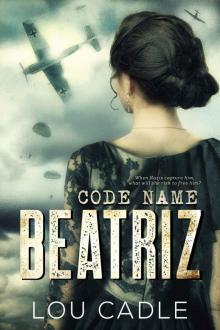 Code Name- Beatriz
Code Name- Beatriz Oil Apocalypse Collection
Oil Apocalypse Collection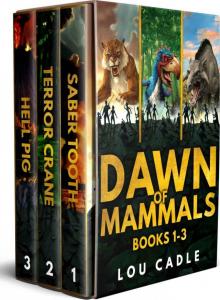 A Dawn of Mammals Collection
A Dawn of Mammals Collection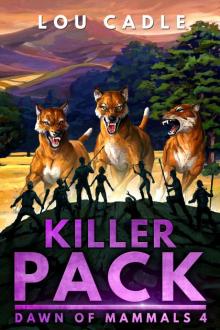 Killer Pack (Dawn of Mammals Book 4)
Killer Pack (Dawn of Mammals Book 4)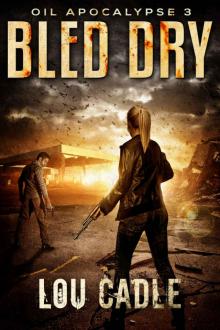 Bled Dry
Bled Dry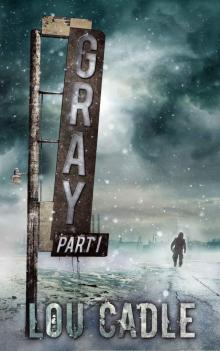 Gray (Book 1)
Gray (Book 1) Dawn of Mammals (Book 4): Killer Pack
Dawn of Mammals (Book 4): Killer Pack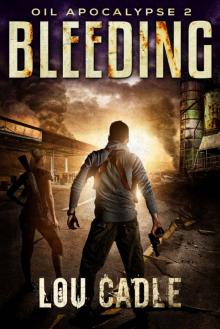 Bleeding (Oil Apocalypse Book 2)
Bleeding (Oil Apocalypse Book 2)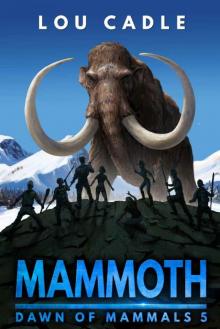 Dawn of Mammals (Book 5): Mammoth
Dawn of Mammals (Book 5): Mammoth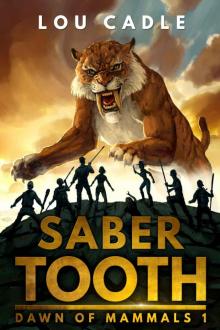 Saber Tooth (Dawn of Mammals Book 1)
Saber Tooth (Dawn of Mammals Book 1)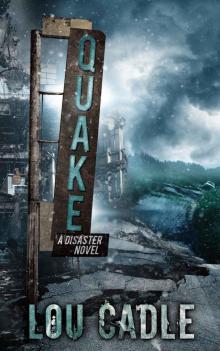 Natural Disaster (Book 2): Quake
Natural Disaster (Book 2): Quake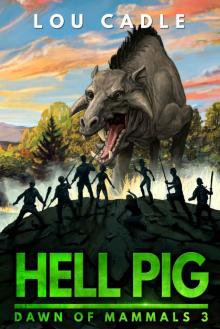 Hell Pig (Dawn of Mammals Book 3)
Hell Pig (Dawn of Mammals Book 3)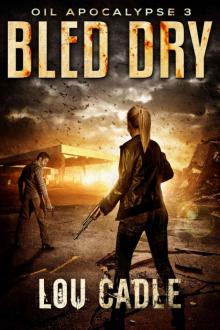 Bled Dry (Oil Apocalypse Book 3)
Bled Dry (Oil Apocalypse Book 3)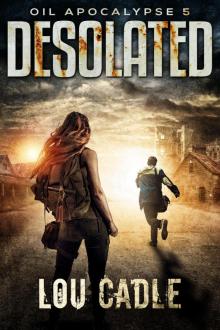 Desolated
Desolated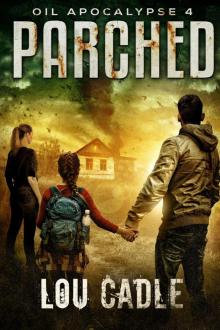 Parched
Parched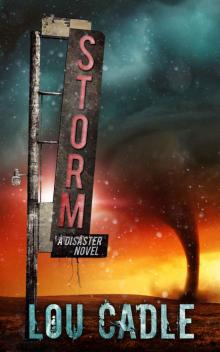 Natural Disaster (Book 3): Storm
Natural Disaster (Book 3): Storm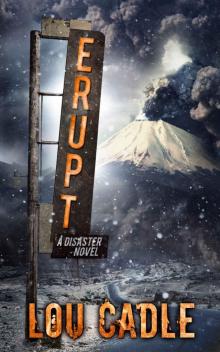 Natural Disaster (Book 1): Erupt
Natural Disaster (Book 1): Erupt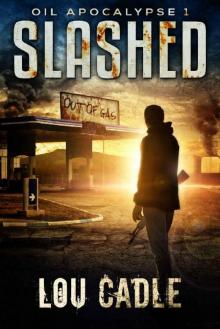 Slashed (Oil Apocalypse Book 1)
Slashed (Oil Apocalypse Book 1)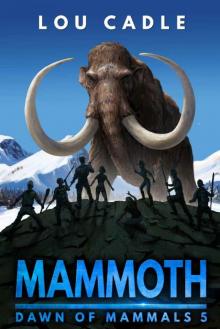 Mammoth (Dawn of Mammals Book 5)
Mammoth (Dawn of Mammals Book 5)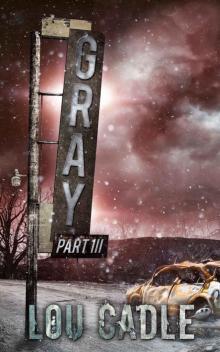 Gray (Book 3)
Gray (Book 3)